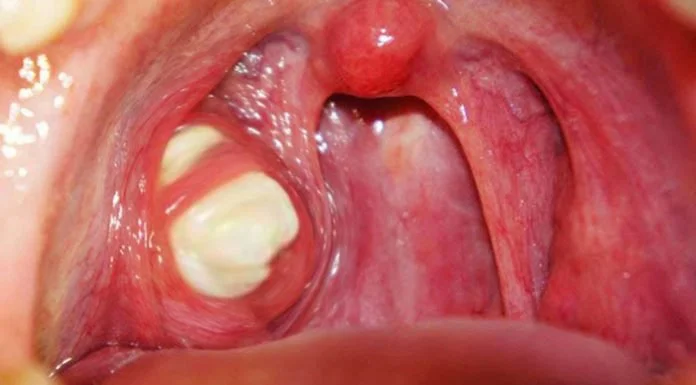Can Tonsils Grow Back After Being Removed? – tymoff” is a question that often arises among individuals who have undergone a tonsillectomy is a surgical procedure performed to remove the tonsils, which are two oval-shaped pads of tissue located at the back of the throat. While it is considered a safe and effective treatment for conditions such as recurrent tonsillitis or sleep-disordered breathing, some individuals may wonder whether tonsils can grow back after being surgically removed. This article delves into the intricacies of tonsil regrowth, factors influencing the process, common concerns, and misconceptions surrounding the topic.
Understanding Can Tonsils Grow Back After Being Removed? – tymoff
Before discussing the possibility of Can Tonsils Grow Back After Being Removed? – tymoff, it is essential to understand what a tonsillectomy entails. During a tonsillectomy, the surgeon removes some or all of the tonsils using various surgical techniques. The decision to perform a tonsillectomy is typically based on factors such as the frequency and severity of tonsillitis, obstruction of the airway due to enlarged tonsils, or the presence of tonsil-related complications.
Can Tonsils Grow Back After Being Removed? – tymoff Tonsillectomy?
The question of whether Can Tonsils Grow Back After Being Removed? – tymoff a tonsillectomy is a complex one. While it is possible for residual tonsil tissue to regrow to some extent, complete regrowth of fully functional tonsils is exceedingly rare. However, the likelihood of tonsil regrowth can vary depending on several factors.

Factors Influencing Tonsil Regrowth
- Age: Children are more likely to experience regrowth of tonsil tissue compared to adults. This is because children’s bodies have a higher regenerative capacity, and their immune systems may respond differently to tissue removal.
- Surgical Technique: The surgical technique used during the tonsillectomy can also influence the potential for regrowth. Traditional tonsillectomy techniques involve complete removal of the tonsils and surrounding tissue. However, newer techniques, such as partial tonsillectomy or coblation tonsillectomy, may leave behind residual tissue that could potentially regrow over time.
- Underlying Medical Conditions: Certain underlying medical conditions may increase the risk of residual tonsil tissue regrowth. Chronic tonsillitis or autoimmune disorders, for example, may affect the healing process and increase the likelihood of regrowth. Additionally, incomplete removal of the tonsils due to underlying health concerns may contribute to the possibility of regrowth.
Common Concerns and Misconceptions
Despite the rarity of complete Can Tonsils Grow Back After Being Removed? – tymoff, some individuals may have concerns or misconceptions about the process. Addressing these concerns can help alleviate anxiety and provide clarity regarding post-tonsillectomy outcomes.
Recurrent Tonsillitis:
One common concern is the possibility of recurrent tonsillitis following a tonsillectomy. While it is true that some individuals may experience a return of tonsillitis symptoms due to residual tissue or other factors, the overall incidence of recurrence is low, especially in cases of complete tonsillectomy.
Postoperative Healing:
Another misconception is that tonsil regrowth indicates a failure of the surgical procedure or inadequate healing. In reality, tonsil regrowth, if it occurs, is often a natural response of the body’s healing process and may not necessarily indicate a complication or treatment failure.
Long-Term Follow-Up:
It is essential for individuals who have undergone a tonsillectomy to undergo regular follow-up appointments with their healthcare provider. These appointments allow for monitoring of postoperative healing, identification of any complications, and appropriate management of recurrent symptoms if they occur.
Can Tonsils Grow Back After Being Removed? – tymoff: Conclusion
Can Tonsils Grow Back After Being Removed? – tymoff after a tonsillectomy exists, complete regeneration of fully functional tonsils is rare. Factors such as age, surgical technique, and underlying medical conditions can influence the likelihood of tonsil regrowth. However, recurrent symptoms following tonsillectomy should be evaluated by a healthcare professional to determine the appropriate course of action. Overall, tonsillectomy remains an effective treatment option for individuals with recurrent tonsillitis or related conditions, providing long-term relief and improved quality of life for many patients.
Frequently Asked Questions (FAQs) About Can Tonsils Grow Back After Being Removed? – tymoff
Q1: Is it common for Can Tonsils Grow Back After Being Removed? – tymoff?
A1: Complete regrowth of fully functional tonsils after a tonsillectomy is exceedingly rare. While residual tonsil tissue may regrow to some extent, especially in children, complete regrowth is uncommon.
Q2: What factors can influence the likelihood of Can Tonsils Grow Back After Being Removed? – tymoff?
A2: Several factors can influence the potential for tonsil regrowth, including the individual’s age, the surgical technique used during the tonsillectomy, and any underlying medical conditions that may affect the healing process.
Q3: Can partial tonsillectomy or other surgical techniques increase the risk of tonsil regrowth?
A3: Partial tonsillectomy and other surgical techniques that leave behind residual tonsil tissue may slightly increase the risk of regrowth compared to traditional tonsillectomy methods that involve complete removal of the tonsils and surrounding tissue.
Q4: How can I tell if my tonsils have regrown after a tonsillectomy?
A4: If you experience symptoms such as sore throat, difficulty swallowing, or recurrent tonsillitis after a tonsillectomy, it is essential to consult with your healthcare provider. They can evaluate your symptoms and determine whether tonsil regrowth may be contributing to your symptoms.
Q5: Is tonsil regrowth considered a complication of tonsillectomy?
A5: Tonsil regrowth, if it occurs, is usually not considered a complication of tonsillectomy. It is often a natural part of the body’s healing process and may not necessarily indicate a treatment failure or surgical complication.
Q6: Can tonsil regrowth lead to recurrent tonsillitis or other complications?
A6: In some cases, residual tonsil tissue regrowth may contribute to recurrent tonsillitis or other symptoms. However, the overall incidence of complications related to tonsil regrowth is low, especially in cases where the tonsillectomy was performed correctly.
Q7: What should I do if I suspect Can Tonsils Grow Back After Being Removed? – tymoff a tonsillectomy?
A7: If you experience symptoms suggestive of tonsil regrowth, such as recurrent tonsillitis or difficulty swallowing, it is essential to seek medical attention promptly. Your healthcare provider can evaluate your symptoms, perform a physical examination, and recommend appropriate treatment options.
Q8: Can tonsil regrowth be prevented?
A8: While complete prevention of tonsil regrowth is not always possible, choosing an experienced surgeon and opting for traditional tonsillectomy techniques that ensure complete removal of the tonsils can minimize the risk of regrowth.
Q9: Are there any alternative treatments for tonsillitis or related conditions besides tonsillectomy?
A9: In some cases, alternative treatments such as antibiotics, corticosteroids, or other medications may be recommended to manage tonsillitis or related conditions without the need for surgery. However, the appropriate treatment approach will depend on the individual’s specific circumstances and medical history.
Q10: What is the recovery process like after tonsil regrowth surgery?
A10: The recovery process after surgery to address tonsil regrowth may vary depending on the extent of the procedure and individual factors. Generally, patients can expect some discomfort, swelling, and temporary changes in swallowing or speech patterns during the initial recovery period. It is essential to follow postoperative instructions provided by your surgeon and attend follow-up appointments as recommended to monitor healing and address any concerns.

Navigating the Diverse Realms of Tech, News, and Business
Meet Debra Evans, a versatile blogger with a passion for exploring the ever-evolving landscapes of technology, news, business, and more. Debra’s blogs are a reflection of her commitment to delivering insightful content that spans a spectrum of niches. With a knack for distilling complex topics into digestible insights, Debra invites readers to join her on a journey where each blog post is a window into the dynamic intersection of modern trends and business dynamics.
